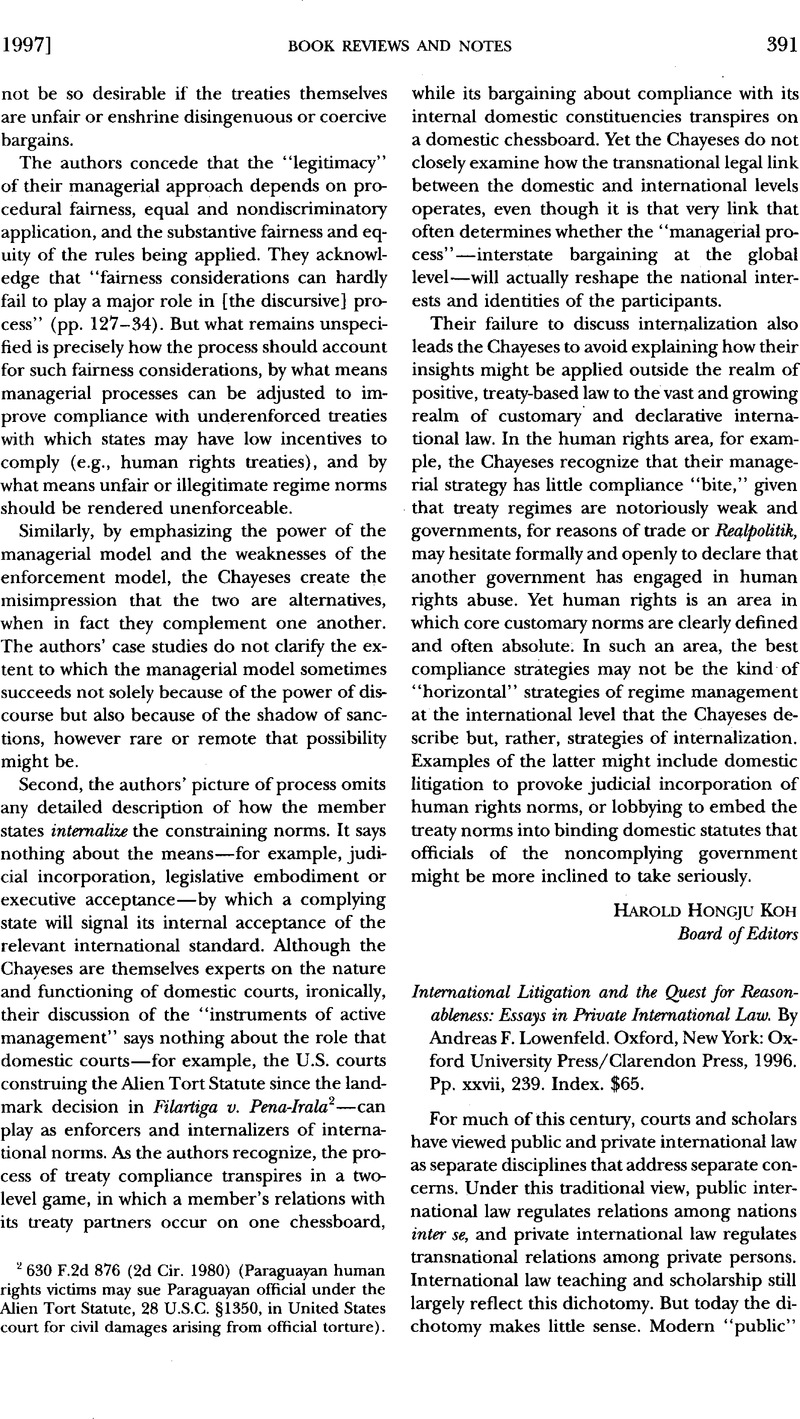No CrossRef data available.
Published online by Cambridge University Press: 27 February 2017

1 Restatement (Third) of the Foreign Relations Law of the United States (1987).
2 See id. at 237 n.*.
3 Andreas F. Lowenfeld , International Litigation and Arbitration (1993).
4 See Sale v. Haitian Ctrs. Council, Inc., 509 U.S. 155, 173 (1993); Smith v. United States, 507 U.S. 197, 204 (1993); EEOC v. Arabian Am. Oil Co., 499 U.S. 244, 248 (1990); Argentine Republic v. Amerada Hess Shipping Corp., 488 U.S. 428, 440–41 (1989).
5 See Gary B. Born , International Civil Litigation in United States Courts 576 (3d ed. 1996) (collecting recent lower-court cases).
6 Hartford Fire Ins. Co. v. California, 113 S.Ct. 2891 (1993).
7 See Kramer, Larry, Extraterritorial Application of American Law after the Insurance Antitrust Case: A Reply to Professors Lowenfeld and Trimble , 89 AJIL 750 (1995);Google Scholar Andreas F. Lowenfeld, Conflict, Balancing of Interests, and the Exercise of Jurisdiction to Prescribe: Reflections on the Insurance Antitrust Case, 89 AJIL 42 (1995); Phillip R. Trimble, The Supreme Court and International Law: The Demise of Restatement Section 403, 89 AJIL 53 (1995).
8 See, for example, title VII’s extraterritorial provision, 42 U.S.C. §2000e(f) (1994), and the Economic Espionage Act of 1996, Pub. L. No. 104-194, §1837, 110 Stat. 3488 (1996).
9 An excellent overview is Cass Sunstein, Problems with Rules, 83 Cal. L. Rev. 953 (1995).
10 Id. at 1012.
11 For the best discussion of these and other oftignored separation-of-powers considerations in the context of federal extraterritoriality, see Curtis A. Bradley, Territorial Intellectual Property Rights in an Age ofGlobalism, 37 Va. J. Int ’ lL. (forthcoming 1997).